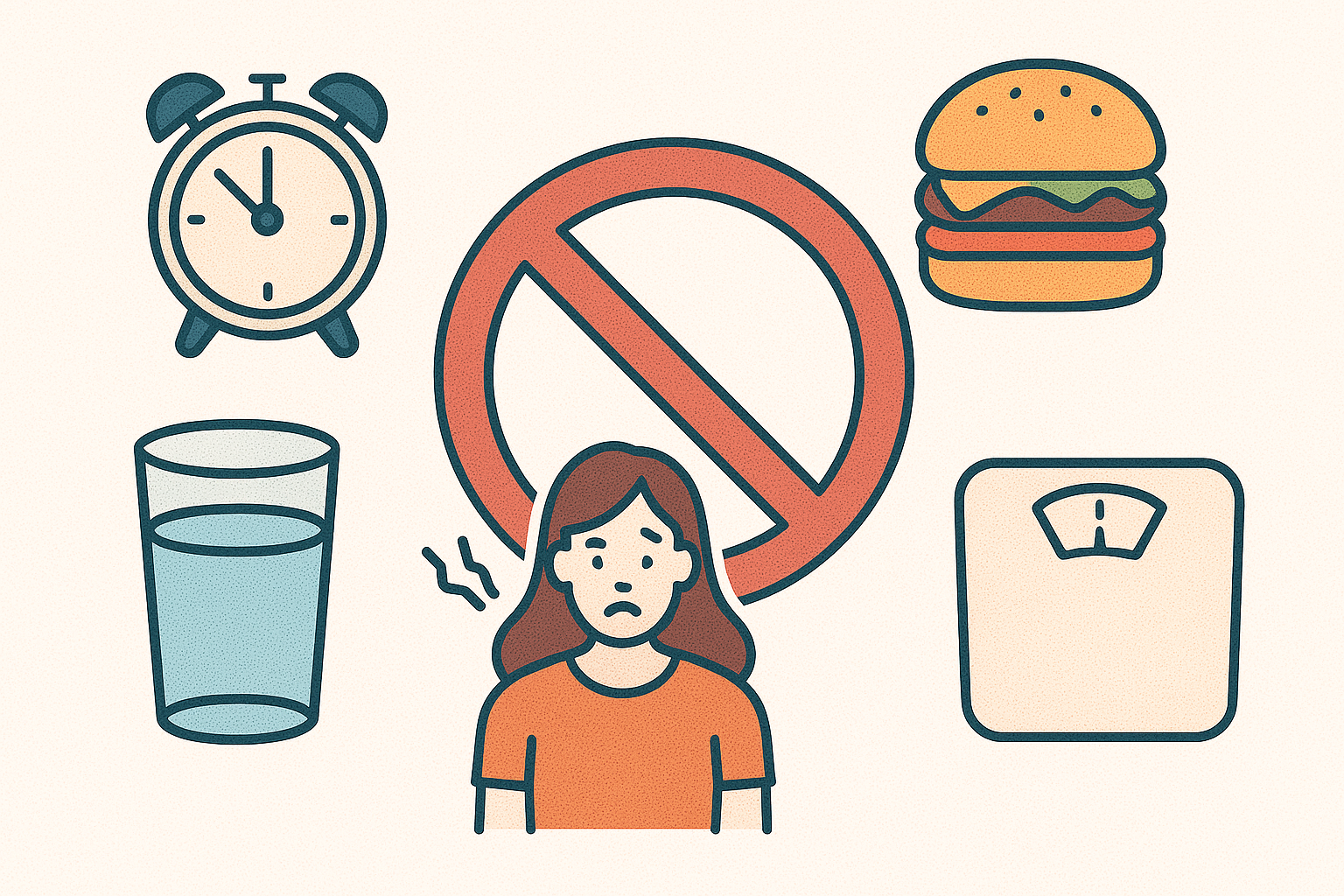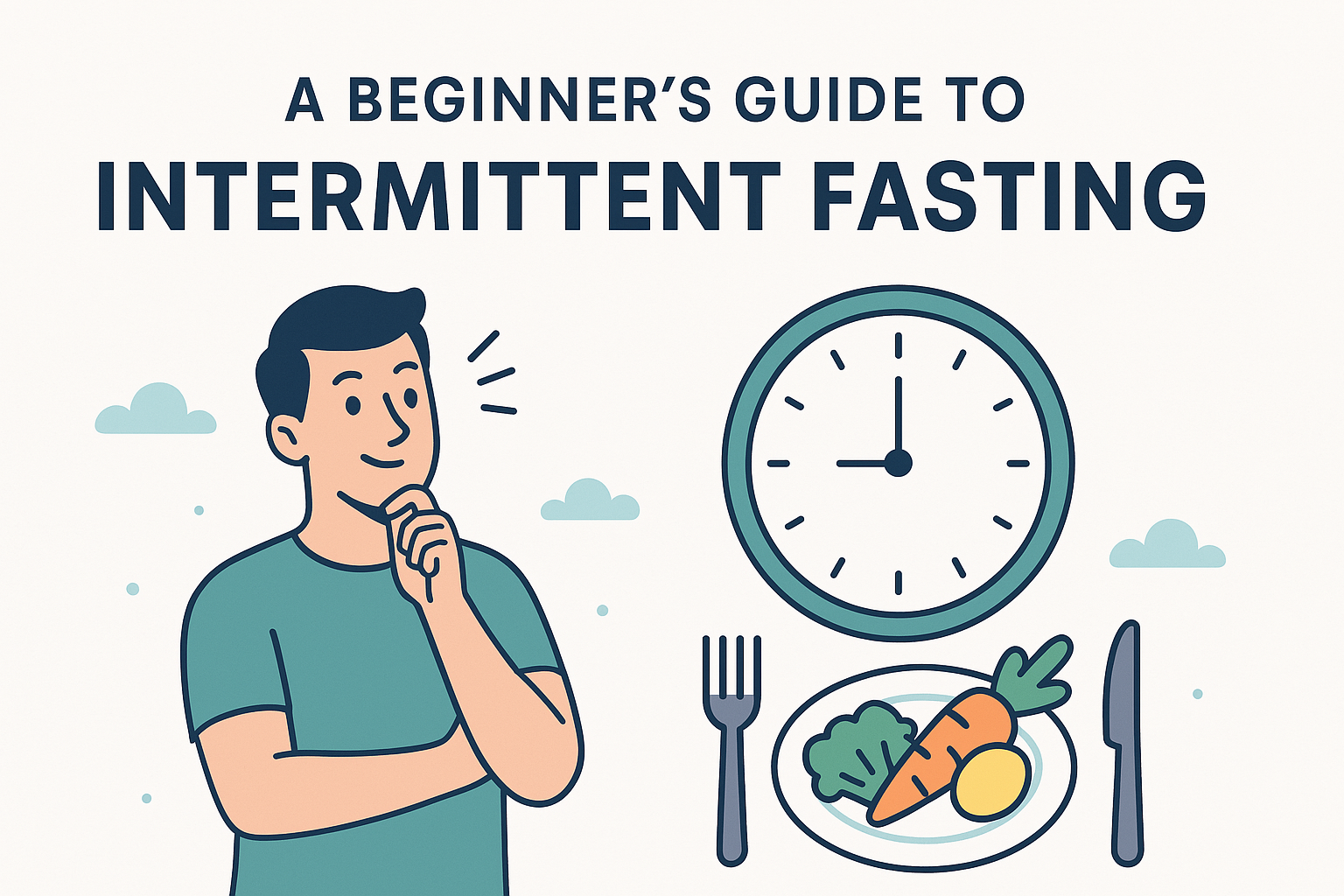5 Common Intermittent Fasting Mistakes to Avoid

Intermittent fasting has become very popular as an effective way to manage weight, improve metabolism, and improve health. While its benefits are apparent, and results are widely known, both novices and experienced practitioners miss certain traps that detract from effectiveness or lead to frustration. Here are five common intermittent fasting mistakes to avoid to maximize your fasting experience.
1. Jumping Into Extended Fasts Too Fast
New practitioners can sometimes be overly enthusiastic and start out with some ambitious fasting schedule such as fasting 20 hours a day, or jumping into multi-day fasting long before their body was prepared to do so. Research consistently shows that our bodies need time to adapt to be able to effectively utilize stored fats and adjust hunger messages. Going into a longer fasting period too quickly can result in serious hunger pangs, fatigue, headache, and even overeating when the fasting window closes.
In this instance, it would be better to ease into intermittent fasting. For example, starting off with shorter fasting windows, such as 12:12 or 16:8 are popular methods and give the body an ample time to adapt to. You can then increase the length of the fast at a pace that your body dictates or behaves better. Once our metabolism becomes more adaptable, extending fasting windows become less uncomfortable and ultimately more sustainable.
2. Neglecting Nutrition During Eating Windows
Intermittent fasting is not only when you eat, but also what you eat. A common beginner mistake is to equate fasting with an opportunity to eat large amounts of high calorie-dense, nutrient-poor foods during eating windows. Research indicates that intermittent fasting paired with a balanced diet will provide you with the best results in terms of weight loss and improved metabolic health.
Try to consume whole foods, such as fruits, vegetables, lean proteins, healthy fats, and complex carbohydrates in your eating windows. Eating balanced meals can provide stable blood sugar levels, help you feel full, sustain your energy levels, and ultimately promote the benefits of fasting.
3. Not Staying Hydrated
Hydration is often neglected when fasting, but it plays a key role in your success. Dehydration can lead to headaches, dizziness, and fatigue, which may be interpreted as hunger. Research shows that staying hydrated enables bodily processes, including metabolism and cognitive functioning necessary for successful intermittent fasting.
Always aim to consume fluids during your fasting windows. Select mostly water, herbal teas, and black coffee without any added sugars or cream. Staying hydrated will help diminish false hunger pangs, increase energy levels, and make fasting more manageable.
4. Not Getting Enough Quality Sleep
Sleep directly relates to intermittent fasting. One of the common mistakes people make is to abandon quality sleep. Sleep plays a role in hunger hormones, metabolic rate and stress levels. If you have poor sleep, you will most likely have increased cortisol, increased appetite, and a difficult time maintaining harmony with your fasting schedule.
Research shows that the optimal number of sleep hours (generally between seven to nine hours) when combined with intermittent fasting will maximize benefits. To improve your fasting experience, try and follow a consistent sleep schedule, and create a sleep environment that is conducive to restful sleep. Fasting combined with quality sleep will improve your body's natural regenerative process.
5. Not Paying Attention to Your Body
One of the biggest mistakes people make is trying to fast according to a schedule and not listening to their body signals. Disciplining yourself is important, however, ignoring physiological cues, like extreme hunger, excessive fatigue, dizziness, or changes in mood, might mean that you need to change your approach. The scientific literature suggests that personalization is key and that fasting protocols must be individualized according to your lifestyle and physiological responses.
Be flexible/responsive. If sustained fasting time is making you consistently feel drained, try fasting for shorter time. If it is easy, keep extending the fasting time. Personalizing your plan will keep you motivated and ensure long-term sustainability and benefit.
Final Thoughts
Intermittent fasting has enormous potential benefits to offer you, from improved metabolic health to weight management sustainability, but avoiding some common pitfalls will be essential to achieving them. Building your fasting schedule slowly, developing a balanced diet, staying hydrated, getting enough sleep, and listening to your body's cues, you will put yourself in a great position for long-term success. Intermittent fasting should be viewed as a flexible and personalized lifestyle change (not a rigid regimen) and if you adopt this viewpoint, you will likely enjoy the process and results a lot more.

